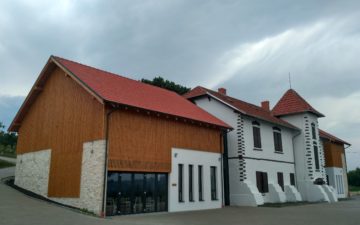The Kallós Zoltán Ethnographic Collection from Răscruci (Hungarian: Válaszút), curated by the Kallós Zoltán Foundation, was established in the 1990s. Both the Foundation and the Ethnographic Collection are dedicated to maintaining and displaying their founder’s tangible and intangible heritage. During his collection trips throughout Transylvania, material and spiritual ethnographic cultural values were both in the forefront of Kallós’s attention. His folk music collection is also accessible online (http://db.zti.hu/kallos/kallos.asp), and the thematic selections of the Kallós Archives’ continuously expanding CD series, edited by the Foundation, are bringing his folk music collection to an ever widening public.
The core of the ethnographic collection consists of 6 000 objects collected personally by founder, Kallós Zoltán. These are, for the most part, objects of folk art with high aesthetic value. The territorial coverage of the private ethnographic collection extends to all Romanian regions inhabited by ethnic Hungarians, i.e. the Transylvanian Plain and the region of Călata (Kalotaszeg), Ghimeș (Gyimes) and Moldova. Additionally, the material culture of the Transylvanian Romanian and Saxon population is also strongly represented in the collection.
The building that hosts the collection warehouses and the exhibition gained its present form in 2017. Its warehouses store textiles and folk costumes, furniture, wooden and metallic objects as well as photography collections, along with the Foundation’s library. The exhibition area encompasses 12 rooms. The tangible collection is presented in the traditional “clean rooms” (tisztaszoba). These valuable elements of popular culture from the Transylvanian Plain and Călata, of the Moldavian Ceangău people (Csángó) and of Transylvanian Saxons and Romanians also provide insight into the ways of life, value systems, traditions, customs and folk art of the respective communities.







